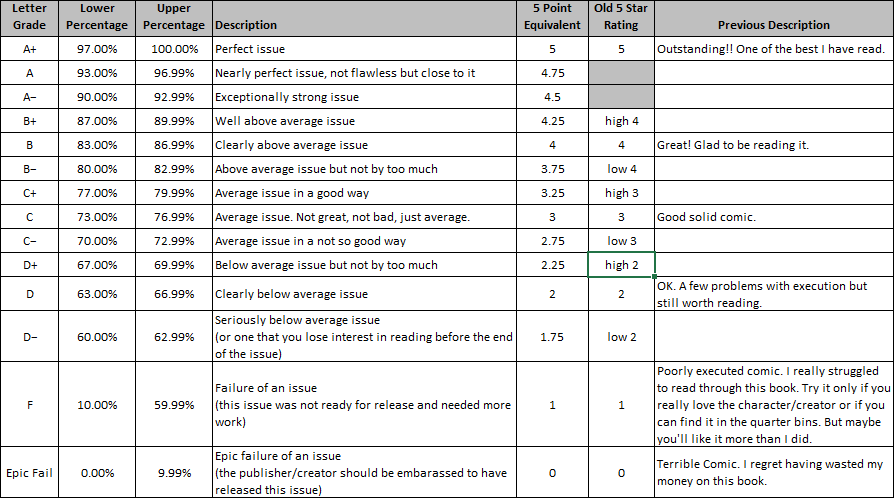First, I read a *LOT* of comics. This wasn't a surprise or a problem but does make doing a year end wrap up challenging.
Second, I need to track creators better. I found it difficult to know/remember what all of the writers and artists I've enjoyed over the year had done. I'm working on a solution for that.
Third, I rarely give out a "5 out of 5" rating. My feelings on this are that it is the top rating an should be reserved for the top books. Essentially, I reserve the rating for the best of the best which leaves out exceptional but not near perfect comics. I didn't give out any 1 ratings in 2014 and not all that many 2 ratings. This is a reflection of picking comics to review from what I normally read.
What ends up happening is the overwhelming majority of my ratings are either a 3 or a 4. This isn't a problem in and of itself but it does result in yearly averages with less granularity than would be helpful when preparing for the Yearly comics Spotlight.
Drew and I have had some discussions around this and we are considering switching to a letter grade scale. I did some research on Wikipedia on letter grading and came up with the following scale (with comparisons to the existing scale).

I don't think the D+ and D- ratings are needed or would be used often, if ever.
This is just something we are considering but with the start of a new year, it would be a convenient time to make such as switch.
I'd really appreciate everybody's thoughts on this.